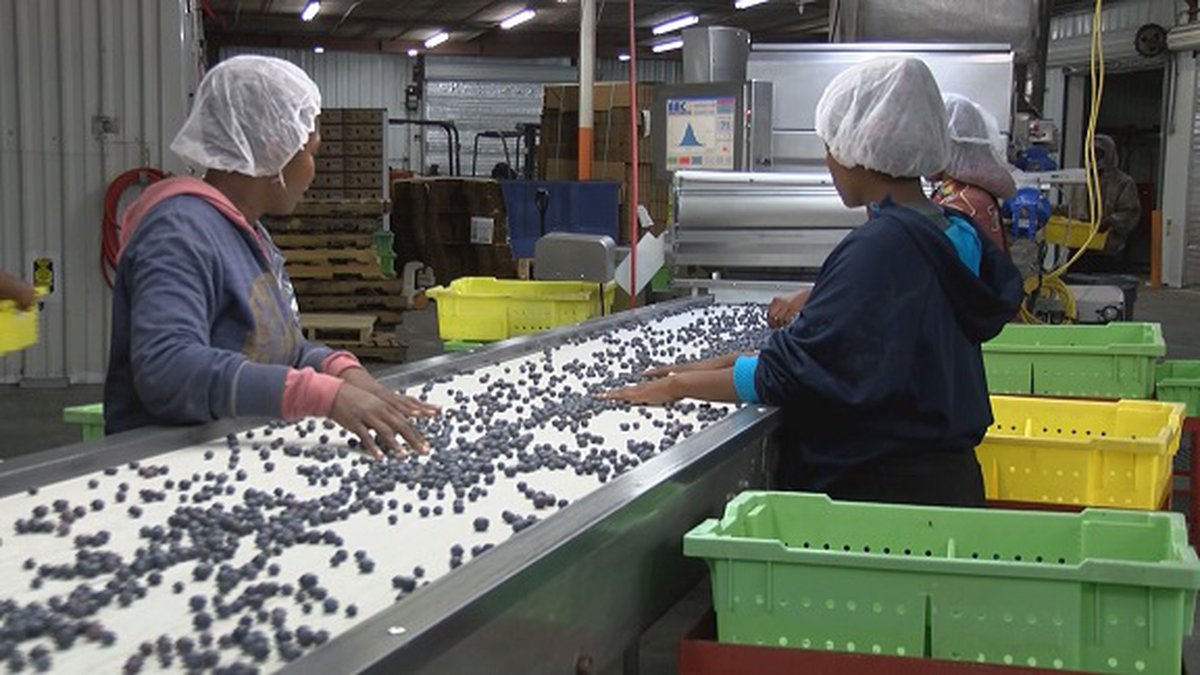How good are you at inspecting fruit? No, I don’t mean your ability to pick out a watermelon at the grocery store that is at peak ripeness and not yet going bad. Nor even whether or not you can handle commercial fruit packing. I spent a summer working in a blueberry packing shed doing commercial fruit packing. You quickly develop an eye to notice a bad berry in the midst of a sea of good berries slowly crawling by on the conveyor belt. The most stressful times where when the inspectors would show up to check the quality of the blueberries going out. Each pint of blueberries is only allowed to have so many non-optimal berries—still a little green, a little past ripe, etc. Whenever the inspectors showed up, suddenly the sorting lines needed to go extra slow and everything needed to be done extra carefully. While no one does a perfect job at inspecting fruit like this, you can be thankful that it happens; the fruit you get to buy at the grocery store is better for it.
Inspecting spiritual fruit
Inspecting fruit for eating is useful, but I’m thinking more about fruit inspection in the sense that Jesus talks about in the Sermon on the Mount. In Matthew 7.15-20, he puts it this way:
15 “Beware of false prophets who come to you in sheep’s clothing but inwardly are ravaging wolves. 16 You’ll recognize them by their fruit. Are grapes gathered from thornbushes or figs from thistles? 17 In the same way, every good tree produces good fruit, but a bad tree produces bad fruit. 18 A good tree can’t produce bad fruit; neither can a bad tree produce good fruit. 19 Every tree that doesn’t produce good fruit is cut down and thrown into the fire. 20 So you’ll recognize them by their fruit. (HCSB)
The image here is clear—good tree gives good fruit, and so forth. But what is good fruit? And what is bad fruit? Within this parable, there is no definition of what sort of fruits in life are good or bad. We have an intuitive sense of what good and bad fruit in peoples’ lives must be, but are those intuitions right? Maybe we have become a little sub-optimal as fruit inspectors because our apprehension of what makes fruit good or bad has gotten a little skewed.
Over this past year, I listened to a significant podcast from Christianity Today called The Rise and Fall of Mars Hill. It is a long form journalistic investigation into the rise and fall of Mars Hill church out in Seattle. In general, I stay away from the world of celebrity pastors, but when I saw this production voted as one of the 10 most significant Christian news events of the year, I thought it would be worth checking out. And it was. One question which came up over and over again in many different forms throughout the podcast is this: has the evangelical church in America become confused about what good fruit is?
All that looks ripe isn’t
If you glance back at the passage above from Matthew, note that it is a warning about people coming into the church who look and talk like they belong there, but who are really wolves. It is not a warning to avoid whackos and nut jobs; rather, a warning to avoid intelligent, savvy, charismatic leaders who, on first (and second, and third) glance look like just the kind of people who should be leading churches, bible studies, and ministries of any sort. These are the sorts of people who get resourced, who become famous, who become influential, who move audiences, who move product. But, they may not be the best people. The fruit that they bear may not actually be good fruit. Maybe we just fool ourselves into thinking that results must be good fruit.
Maybe we are so hungry to see fruit of any sort, that we don’t really care to look carefully and judge whether the fruit is good or not.
Good fruit—living in the pattern of Jesus
Within the context of the Sermon on the Mount, I must conclude that the good fruit Jesus has in mind is the pattern of life and obedience which he is laying out in the sermon. In other words, the good fruit we should look for in the lives of leaders and influential people—as well as in our own lives—is primarily a set of character traits that we might sum up under the term “Christlikeness.”
We are all involved in following other people. Many other people speak into our lives about how to live and who we should be—by words or actions. A central skill for us to develop is “fruit inspecting.” There will be many people who step into our lives claiming they know the path towards the good life. To decide whether they are worth listening to and following requires some fruit inspecting. We should be watching for people whose lives show growth in Christlikeness—the fruit which Jesus calls good—and follow along with them. No one this side of eternity will get it all right. But we can look for others who are walking in the right direction and walk with them.


